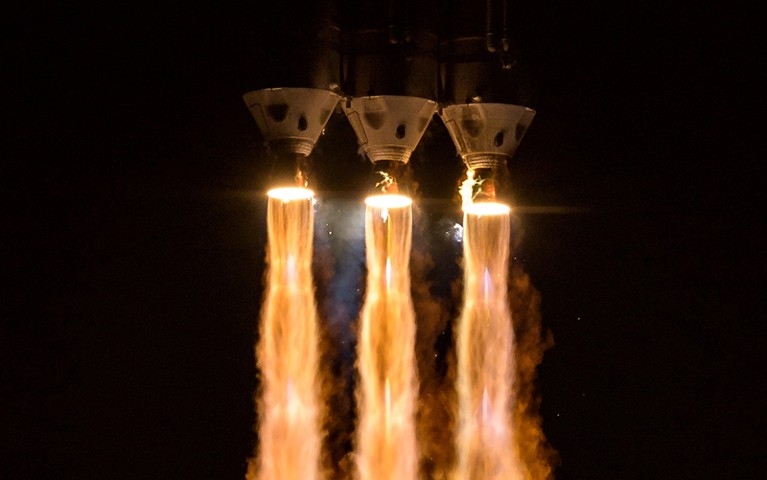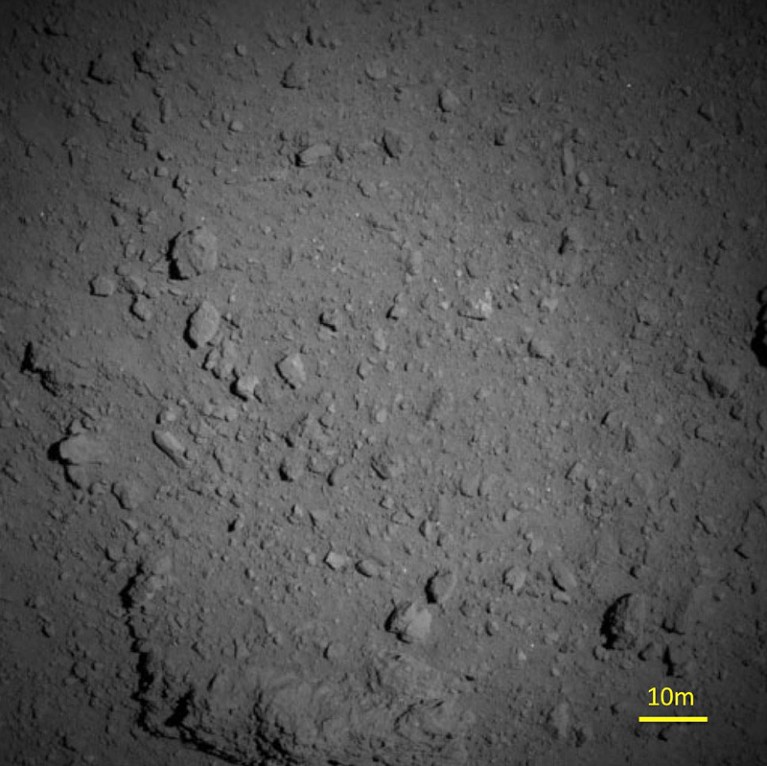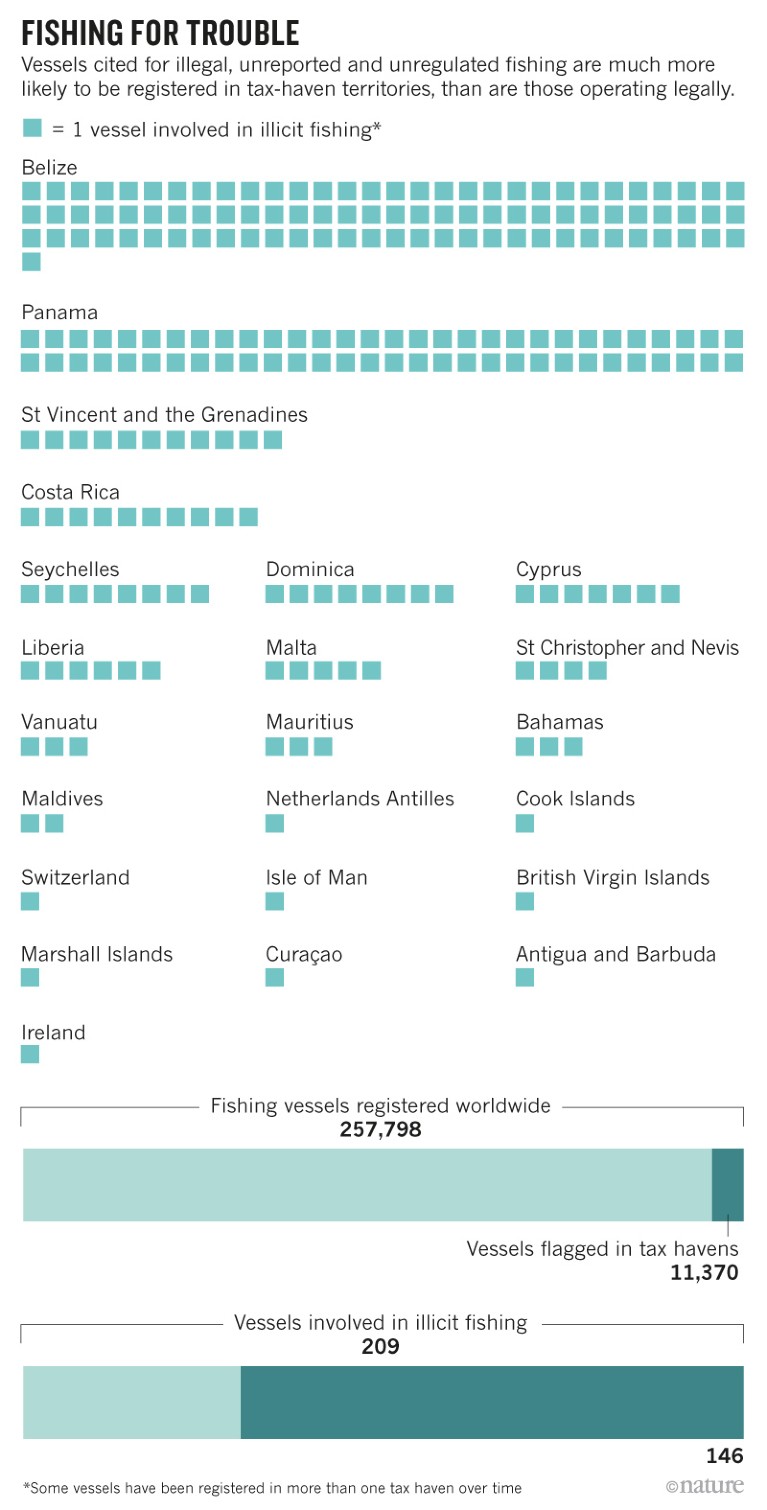EVENTS
Spacecraft set for the Sun On 12 August, NASA launched its US$1.5-billion Parker Solar Probe, a mission that will skim through the Sun’s upper atmosphere and ‘taste’ the source of the solar wind. The spacecraft lifted off from Cape Canaveral, Florida, on a trajectory that will take it past Venus in October, for a gravitational nudge to its orbit, and then past the Sun in November. Over the next 7 years, it will fly close to the Sun 24 times, coming within 6.2 million kilometres of the surface. That will put the craft in the solar corona, where it will sample the magnetic, and other, energies that generate the stream of charged particles known as the solar wind, which drives space weather. It will be, by far, the closest any spacecraft has ever been to the Sun. The mission is named after US astrophysicist Eugene Parker, who proposed the existence of the solar wind and who, now aged 91, attended the launch of the satellite.

A rocket carried NASA’s Parker Solar Probe to space on 12 August.Credit: Bill Ingalls/NASA
Salk settlement The Salk Institute for Biological Studies has settled two gender-discrimination lawsuits filed last year. Cancer researchers Katherine Jones and Victoria Lundblad have agreed to drop all claims against the institute, located in La Jolla, California, according to a statement released on 7 August by the pair and Salk’s president, neuroscientist Rusty Gage. A spokesperson for the Salk Institute declined to comment further on the matter, as did the lawyer who represents Jones and Lundblad. A third gender-discrimination lawsuit against the Salk Institute, filed last year by molecular biologist Beverly Emerson, is still pending. Emerson alleges that systemic bias at the institute hampered her access to research funding, laboratory space and other resources. In January, the Salk Institute declined to renew Emerson’s contract; Jones and Lundblad are still on staff. A court in San Diego, California, is scheduled to hold a hearing on Emerson’s case on 17 August.
Ethics vote The American Psychological Association (APA) has upheld its ban on psychologists working with the US military at secretive detention facilities. At the APA’s annual meeting in San Francisco, California, on 8 August, the organization’s governing board voted, 105 to 57, to reject a proposal that would allow psychologists to work with the military at detention sites that have been accused of human-rights violations, even if only to provide care to inmates. The APA first instituted this ethics rule in 2009, after it emerged that psychologists had helped to design torture programmes used at the US detention facility in Guantanamo Bay, Cuba, and other offshore sites.
POLICY
US space force US Vice-President Mike Pence gave details of the White House’s plans for its proposed Space Force during a 9 August speech in Washington DC. Pence said the Space Force would be a military branch headed by a new assistant secretary of defence for space, with a suggested budget of US$8 billion over 5 years. The White House wants to establish the Space Force by 2020 to take over warfighting duties in space from the US Air Force, which Pence said would help to counter anti-satellite work by China and other countries, and would strengthen national security. The idea has some support in Congress, which would have to approve the creation of the Space Force. The House of Representatives passed language supporting it in a 2018 authorization bill, but it did not survive the Senate.
UNIVERSITIES
Plagiarism rules India has for the first time introduced regulations for how universities should detect and punish acts of plagiarism. Sanctions for researchers or students caught breaking the rules range from requiring that a manuscript be withdrawn to sacking or expulsion, depending on the extent of the plagiarism. The regulations define plagiarism as “taking someone else’s work or idea and passing them as one’s own”, and will apply to the 867 universities and affiliated institutions that report to the nation’s education regulator, the University Grants Commission (UGC). The UGC announced on 3 August that the rules came into effect retroactively from 23 July. Previously, punishments for researchers who were caught plagiarizing were left to the discretion of the institution. The new rules also make it mandatory for institutions to use plagiarism-detection software on students’ theses and researchers’ manuscripts. Currently, only some universities use detection software. Several high-profile academics in India have been accused of plagiarism over the past decade.
Exam-score scandal Officials at Tokyo Medical University have confirmed that university staff members have been lowering the scores of female students taking its entrance examination. The announcement follows an article in the Japanese newspaper Yomiuri Shimbun that revealed the practice, prompting an internal university investigation. The investigation found that staff had been reducing female applicants’ entry scores by 20 percentage points, with the practice beginning as early as 2006. An anonymous source at the university, quoted in the article, said the practice was designed to decrease the number of women accepted, because of the belief that many leave medicine to look after children. The university investigation found that staff members also lowered the scores of some men who had failed the exam multiple times. At a press conference on 7 August, one of the university’s managing directors, Tetsuo Yukioka, apologized for the practice and promised to eradicate it. Three days later, the education ministry launched a survey of the country’s 81 medical schools to look for evidence of similar procedures.
SPACE
Asteroid close-up The Japanese mission Hayabusa2 made its closest approach yet to the asteroid Ryugu on 7 August. Mission control at the Japan Aerospace Exploration Agency first manoeuvred the spacecraft from its hovering position 20 kilometres above the space rock to an altitude of 6 kilometres. Then, it let the probe free-fall to just 851 metres above the surface to measure Ryugu’s gravitational pull, and therefore its mass. Ryugu, which is about 1 kilometre in diameter, is a type of asteroid that is common in the Solar System, but which has not been closely studied until now. Newly released images (pictured) show a surface strewn with boulders of various sizes. Hayabusa2 was launched at the end of 2014 and arrived at Ryugu in June. It is due to release several landers onto the rock, and the probe itself will also touch down to collect samples, which it will return to Earth in 2020.

The asteroid Ryugu’s surface is strewn with boulders.Credit: JAXA, Univ. Aizu & Collaborators
FUNDING
Innovation cash The UK government will invest at least £1 billion (US$1.3 billion) in its network of innovation centres over the next 5 years. The funding, which comes from the research budget and was announced on 10 August, will support six of ten existing centres known as Catapults, which are designed to bring academics and industry together to commercialize research. The six that secured funding focus on areas including gene therapy, semiconductors and renewable energy. The Catapults’ governing agency, Innovate UK, says that it will fund the remaining centres in due course. Three of these four facilities are under extra scrutiny after an independent review in 2017 suggested that they might not be delivering value for money.
BUSINESS
Monsanto fined A California jury has sided with a groundskeeper who says that he developed non-Hodgkin’s lymphoma after using the herbicide Roundup, made by the agricultural giant Monsanto. In a decision on 10 August, the jury said that the corporation had failed to warn consumers of the potential dangers of the product, which contains the widely used chemical glyphosate, and the judge ordered Monsanto to pay Dewayne Johnson US$289 million in damages. Glyphosate has become controversial amid arguments over whether it is carcinogenic. In 2015, the World Health Organization’s cancer-research arm said that the substance was “probably carcinogenic” to humans, on the basis of studies linking glyphosate exposure to cancer in rodents and humans, but the US Environmental Protection Agency and other bodies say the product is safe, pointing to other studies that find no connection to cancer. Johnson’s is the first such case against the company to go to court in the United States; thousands of similar suits are pending. In a statement, Monsanto’s vice-president, Scott Partridge, said that the “decision does not change the fact that more than 800 scientific studies and reviews support … the fact that glyphosate does not cause cancer”, and that it would appeal against the decision.
TREND WATCH
Tax havens might facilitate deforestation and illegal fishing, according to an analysis published on 13 August. Researchers scoured publicly available databases to find out where ships caught fishing illegally were registered. Of the 209 ships found to be involved in illicit fishing, 70% were flagged under the jurisdiction of tax havens — territories that impose very low taxes and provide secrecy around financial activities. By contrast, only 4.4% of the world’s total fishing vessels were registered in these territories. Most vessels involved in illegal fishing were registered in Belize and Panama, two countries dubbed ‘flags of convenience’ states. These states impose few repercussions on ship owners who break international law, in addition to providing the financial benefits of a tax haven. Tax havens might protect unscrupulous fisheries and provide cash for environmentally damaging industries — yet these consequences have been ignored by policymakers, says lead author Victor Galaz, a political scientist at Stockholm University. The new paper provides “the first global assessment to put this issue on the agenda”, Galaz says.

Source: V. Galaz et al. Nature Ecol. Evol. http://doi.org/cszj (2018)



